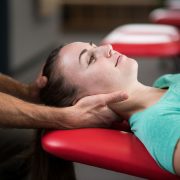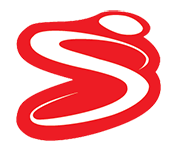In recent years concussions and the associated long-term effects have become a hot topic in sports medicine. Controversy still exists among experts in the medical community on how these injuries can be best treated, managed and prevented but the prevailing research at this time supports a multi-systematic approach, tracking physical symptoms and symptom management, vestibular disruptions, cognitive impairments, and emotional effects, and monitoring appropriate mental and physical stresses for best return to play decision making and preparation.
For athletes with a suspected concussion our best recommendations are as follows:
- Have the concussion evaluated by a licensed medical professional with expertise in treating concussion.
- Sports Activities must stop immediately. Do NOT allow the athlete to participate in sports or any other activity with risk of head injury until he/she is cleared by a licensed medical professional with expertise in treating concussion. Serious side effects, sometime fatal, can result if an acutely concussed athlete returns to play and sustains a second concussion.
- Do NOT allow the athlete to engage in strenuous physical activity—even activity with little chance of head impact —until he/she has recovered from his/her concussion or has been advised by a licensed medical professional with expertise in treating concussion. Strenuous physical activity during early stages of concussion robs your brain of the energy it needs for healing.
- Limit strenuous cognitive activity until you have recovered from your concussion or have been advised by a licensed medical professional with expertise in treating concussion. Your brain requires additional energy to heal from a concussion, and excessive mental effort interferes with recovery. This may require coordination with school councilors to allow for time off from school, modified homework, extra time for assignments and/or access to the school nurses office for intermittent breaks when returning to school.
- Do NOT allow the athlete to consume any alcoholic beverages.
- Do NOT allow the athlete to take aspirin or ibuprofen (unless prescribed by physician) after the injury as these products may increase the risk of a bleed and may mask symptoms of a more severe injury.
- Get plenty of sleep and rest. This will help your brain to recover from the concussion.
- Complete rest beyond 1-3 days is very rarely needed and may actually be counter productive for recovery.
What is a concussion?
Current thinking is that a concussion results from both structural damage (on the cellular level) and neuropsychiatric factors. Said another way, concussion is a brain injury that occurs when the brain is shaken inside the skull, causing trauma and changes in the brain’s chemistry and energy supply. It can be easy to miss as diagnostic imaging such as magnetic resonance imaging (MRI) or a computer tomography (CT) scan is usually normal. A concussion might happen as a result of a direct blow to the head or an indirect force, such as whiplash.

Picture from www.moveforwardpt.com/concussion
Signs and symptoms
| Physical | Cognitive (Thinking) | Emotional |
| Headache | Difficulty with short term or long term memory | Irritability |
| Dizziness | Confusion | Restlessness |
| Difficulty with balance | Slowed “processing” (for instance, a decreased ability to think through problems) | Anxiety |
| Nausea/Vomiting | “Fogginess” | Depression |
| Fatique | Difficulty with concentration | Mood swings |
| Difficulty with sleeping | Aggression | |
| Double or blurred vision | Decreased tolerance to stress | |
| Sensitivity |
What is post-concussion syndrome?
Experts agree that the vast majority (80-90%) of all concussions in sports resolve on their own within 7-10 days (although this time frame is often extended in children and adolescents). However, symptoms can linger and ‘Post-Concussion Syndrome’ (PCS) can develop after a single injury. Broadly defined, the hallmarks of PCS include prolonged fatigue, headaches, dizziness, irritability, anxiety, insomnia, and difficulty with concentration or memory, as well as intolerance to cardiovascular exercise.
How is a concussion diagnosed?
Concussion is easy to miss because diagnostic imaging, such as magnetic resonance imaging (MRI) or a computed tomography (CT) scan, usually is normal.
Because of the variety of possible symptoms that can interfere with day-to-day activity, seek coordinated medical care immediately.
Athletes who have sustained a concussion should always follow-up with their medical provider prior to being cleared for return to sport.
How can we help?
 At VASTA Physical Therapy our therapists are specially trained in Assessment and Management of Concussion. The initial assessment will include a detailed cognitive assessment, balance/coordination testing, neurological testing and an evaluation of the cervical spine. If indicated we may also perform baseline vestibular screening. We will set initial limitations on activity guided by heart rate monitor on baseline tolerance for aerobic activity. Patients will be given a schedule for graded progression of activity. Patient will return at regular intervals per re-assessment and modification of programs as indicated. Additionally we will provide vestibular therapy (if dizziness persists) and treatment for the cervical spine if needed. This can be essential in reducing upper cervical pain and tension type headaches that may accompany a concussion and may help with “cervicogenic” dizziness.
At VASTA Physical Therapy our therapists are specially trained in Assessment and Management of Concussion. The initial assessment will include a detailed cognitive assessment, balance/coordination testing, neurological testing and an evaluation of the cervical spine. If indicated we may also perform baseline vestibular screening. We will set initial limitations on activity guided by heart rate monitor on baseline tolerance for aerobic activity. Patients will be given a schedule for graded progression of activity. Patient will return at regular intervals per re-assessment and modification of programs as indicated. Additionally we will provide vestibular therapy (if dizziness persists) and treatment for the cervical spine if needed. This can be essential in reducing upper cervical pain and tension type headaches that may accompany a concussion and may help with “cervicogenic” dizziness.
At VASTA we will guide and monitor a safe and gradual progression based on objective milestones to ensure the safety of the athlete. We communicate and coordinate with your Physician to implement best practices in returning the athlete back to sports/activity.
Baseline Testing:
VASTA Physical Therapy is now offering baseline concussion testing. This baseline testing consists of both a computerized cognitive test as well as a balance (vestibular) test to establish individualized standards in the event an athlete sustains and needs to be evaluated for concussion. The ImPACT computerized concussion testing and assessment is a nationally recognized tool that has been scientifically validated by third party researchers for helping to assist with safe return to play decisions. Used by professional sports teams, high schools, colleges, clinical conters, military units, and performers, ImPACT is the country’s most widely used computerized concussion evaluation system. By establishing a baseline for you or your athlete’s cognitive and vestibular functioning, concussion management and return to play can better be tailored to you or your athlete’s specific normative values. Click here for additional information.
The baseline test should be repeated annually for children ages 10-12, every two years ages 13-17, and once every four years for 18+.
*This testing takes about 45-60 minutes for an individual.
Discounted group rates are available for full team testing.
*Call VASTA Physical Therapy at 802-399-2244 to schedule your baseline evaluation.
Helpful links:
www.moveforwardpt.com/concussion
https://www.cdc.gov/headsup/index.html
Concensus statement on Concussion in Sport: The 4th International Conference on Concussion in Sport held in Zurich, November 2012.
UVM Medical Center Return to Play Protocol
Position Statement from the American Medical Society for Sports Medicine
Some Helpful Videos:
Concussion 101
Some Helpful Videos:
Concussion Management and Return to Learn
Some Helpful Videos:
Cautionary Tale – ‘Post-Concussion Syndrome’
Some Helpful Videos:
ESPN Outside the Lines ‘Post-Concussion Syndrome’ in Professional Sports

